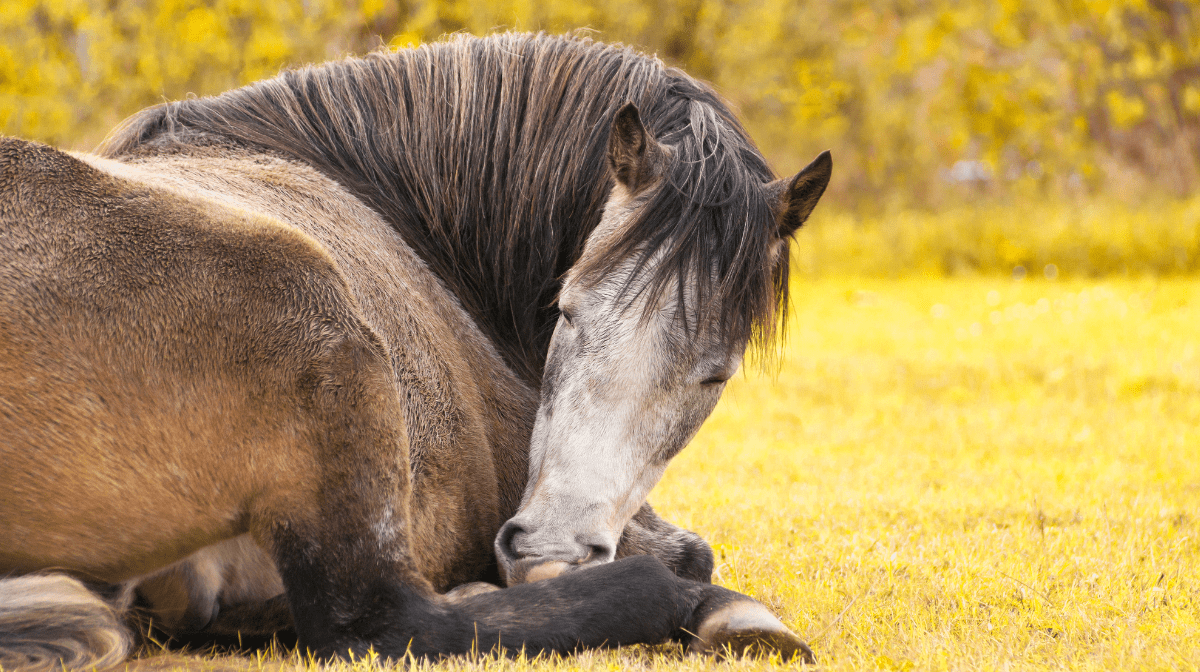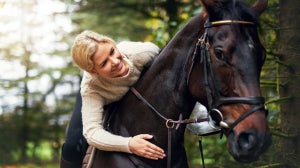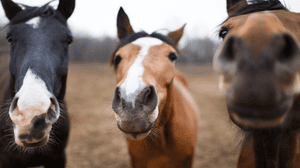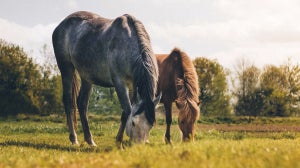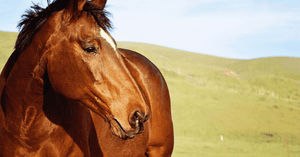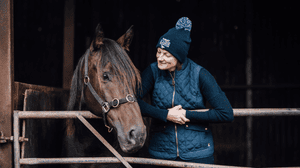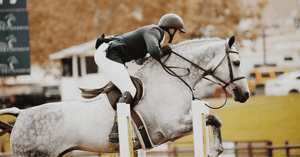
As equine enthusiasts, it's natural for us to wonder about our horses' lives, including how they sleep. Read our guide to horses sleeping habits below.
As equine enthusiasts, it's natural for us to wonder about the aspects of our horses' lives, including how they sleep. Have you ever seen a horse lying down in the pasture and wondered if they were sleeping or simply resting? Or maybe seen them standing in their stable with their eyes closed? In this comprehensive guide, we delve into the world of equine sleep and explore how they do it and why it’s unique.
- 1. Equine sleep patterns
- 2. Do horses sleep standing up?
- 3. Lying down sleeping
- 4. Ideal sleep environment for horses
- 5. Understanding individual variations
- 6. Conclusion
Equine sleep patterns
To start, it's important to understand the sleep patterns of horses. Horses, unlike humans, do not experience continuous sleep for several hours at a time. Instead, they have a ‘polyphasic’ sleep pattern, which means they sleep for short periods throughout the day and also the night.
These naps typically last for about 15-30 minutes, adding up to a total of 2-4 hours of sleep per day. Horses are natural prey animals, so this sleep pattern allows them to remain vigilant to any threats, rather than falling into a deep sleep and becoming potentially vulnerable.
Do horses sleep standing up?
In short, yes! One of the most interesting aspects of horses sleeping is their ability to sleep while standing. Horses have a unique system of ligaments and tendons in their legs that allows them to lock their knees, hocks, and fetlocks, essentially creating a sort of "stay apparatus." In the hindlimb, the patella (kneecap) is pulled out of place to 'lock' the stifle, allowing them to weight bear more passively. Although this may sound uncomfortable, this is an anatomical design perfected over thousands of years of evolution.
This allows horses to rest and sleep while standing, which is a survival method inherited from their ancestors. By sleeping while standing, horses can quickly escape from predators if necessary.
The standing sleep position, as you can imagine, is how horses engage in light, rather than deep sleep. A standing horse can go from being asleep to fully awake within moments. Observing a horse in this state can be misleading, as they may appear to be sleepy and resting but can be alert and ready to move very quickly.
Another benefit of being able to sleep standing up is that it means horses can avoid injury from lying down in confined spaces, such as a stable
Lying down sleeping
While horses can snooze while standing, they also need to lie down for deep REM (Rapid Eye Movement) sleep. Unlike humans, who experience REM sleep for a large portion of the night, horses only enter REM sleep for short durations, typically totalling about 30 minutes per day. During this deep sleep, horses may exhibit twitching, muscle relaxation, and rapid eye movement.
With this in mind, how do horses manage to sleep lying down without putting themselves at risk? Horses are instinctually built to get around this problem.
Additionally, horses often take turns standing guard while others in the herd sleep lying down!
Ideal sleep environment for horses
Creating a good environment for a horse to sleep involves providing them with a safe and comfortable space. Horses are far more likely to lie down and enter deep sleep when they feel secure in their surroundings, so create a welcoming space for them to be able to sleep deeply.
Adequate bedding in their stables can make a significant difference, as it provides a cushioned surface for them to rest comfortably. Additionally, ensuring that the sleeping area is clean and free from hazards is crucial. Horses are instinctively cautious animals, and so are more likely to lie down in an environment they see as safe.
Understanding individual variations
It's also important to recognise that individual horses and ponies will have variations in how they sleep. Factors such as age, health, and mood can influence how much sleep they need and when they choose to rest.
Older horses will likely require more rest, while young, energetic ones might be more prone to shorter naps.
Understanding the sleep patterns of individual horses in your care is vital for their wellbeing. If you notice significant changes in a horse's sleep behaviour, it could be an indication of an underlying health issue, and consulting with your vet is a good idea.
Conclusion
As the owners and carers of horses, providing a safe and comfortable sleeping environment is our responsibility, ensuring that they get the rest they need to lead healthy and happy lives.

